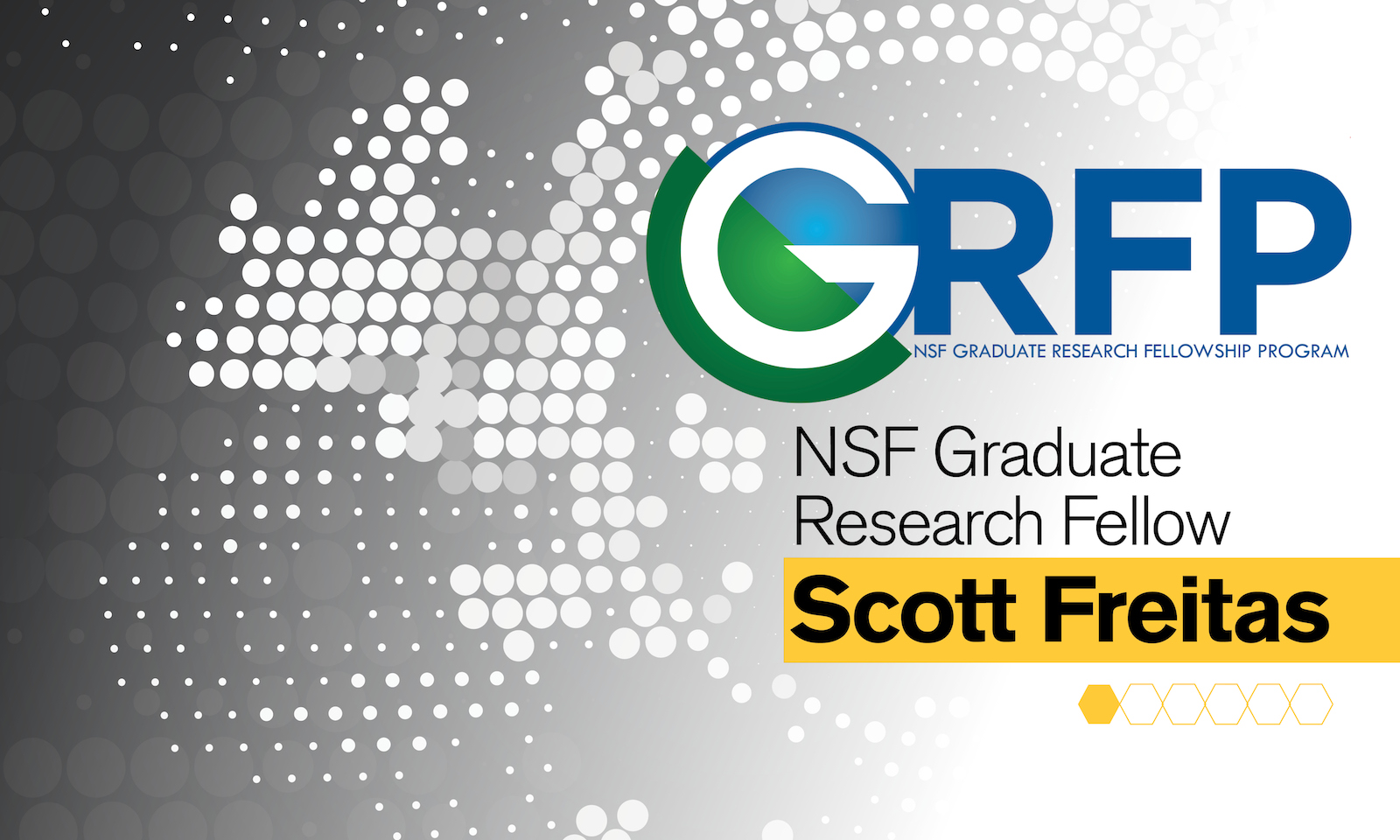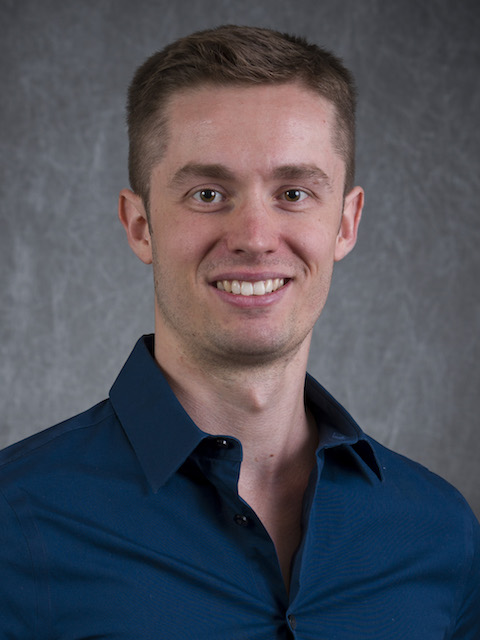
NSF Graduate Research Fellow uses computer science to solve society’s toughest problems

This is part one of a six-part series highlighting GRFP award winners from the Ira A. Fulton Schools of Engineering.
“I’ve had a passion for building things and understanding how things work since I was young,” Scott Freitas says. “Computer science is an extension of that. You get to work on building and testing new ideas and theories every day.”

Scott Freitas
The allure of that pursuit brought Freitas back to college after he had already earned an undergraduate degree in electrical engineering at Arizona State University in 2014 and gone into the workforce for a short time.
Earlier this year Freitas received a graduate degree through the 4+1 computer science accelerated master’s degree program in ASU’s Ira A. Fulton Schools of Engineering.
His academic performance and research achievements have now earned him a National Science Foundation Graduate Research Fellowship award to support his work toward a doctoral degree in computer science in a highly reputable program at the Georgia Institute of Technology.
There Freitas will focus on research that explores how people connect and function through “societal constructs” — for example, energy and transportation networks and social networks.
“Many aspects of life and society can be represented as a network at a basic level,” Freitas explains.
“By understanding how we relate to each other in all kinds of networks we can do cool things like fraud prediction and malware detection,” he says. “My goal is to develop explainable systems to tackle these tough problems by incorporating many different sources of knowledge and information.”
The work involves analyzing large and complex sets of data for the purpose of creating better algorithms to inform critical decision-making and problem-solving.
“This has important applications in many areas, like epidemiology, cybersecurity and health care,” he says.
Freitas credits his budding skills largely to two years of research under the supervision of Assistant Professor Hanghang Tong, and to mentorship from other Fulton Schools faculty members, notably Associate Professor Ross Maciejewski and Assistant Professor Yezhou Yang.
Freitas says what he learned from them enabled him to author a research project proposal that he believes “put me over the top” of the approximately 12,000 applicants seeking NSF Graduate Research Fellowships.
He submitted his ideas for creating a data platform and a mathematical model using real-time assisted decision-making and preventive analysis for developing strategies to reduce the impacts of damage to local communities resulting from natural disasters.
The buildup to that successful application stemmed from “an abundance of opportunities” he used to further his education during both his undergraduate and graduate studies.
Freitas’ work in the Fulton Undergraduate Research Initiative, known as FURI, gave him the first motivating experience of doing substantive research.
Later, the insights gained in Tong’s Data Lab@ASU and Maciejewski’s Visual Analytics and Data Exploration Research Lab strengthened his commitment to rise higher in his field.
At this point, Freitas is confident in setting a long-term career goal of starting his own company. He wants to apply machine learning, data mining and network analysis to finding solutions to cybersecurity and human health challenges.



































